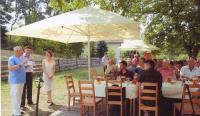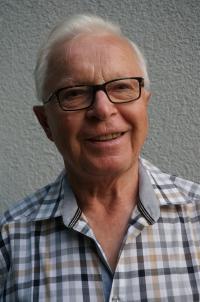It was good for us indeed
Ewald Seifert was born on 8th April, 1937 in Schwarzwasser (today Černá Voda) as the fourth out of six children. His father worked in Steinbruch and his mother led the household, when she didn‘t work in the farm. He attended school in Schwarzenwasser for about one and a half years, until after the war he could only speak Czech, which he, like most Germans, could not do. The exclusion continued through everyday bullying to wearing of white armbands with a black „N“ for „German“. In the middle of August 1946, the family had to pack up all their belongings within hours and then go to the „Muna“, the former ammunition factory in Niklasdorf. They travelled with many other Germans on a train in cattle truck; the journey lasted for two days and three nights from Prague to Bavaria. In September 1946 he and his family came to Ohrnbach near Rothenburg ob der Tauber. The reception by the Bavarian population fluctuates between undeniably rejecting the „refugees“; the Sudeten Germans always attach great importance to „home-displaced“ persons and solidarity in difficult times for all people. The family set up their new life in Ohrnbach; from December 1945 also with the father, who was found and rescued amongst American war prisoner. Seifert finished his apprenticeship, founded a family, built a house, and since 1980s onwards keeps visiting his „native country“ on regular basis.


